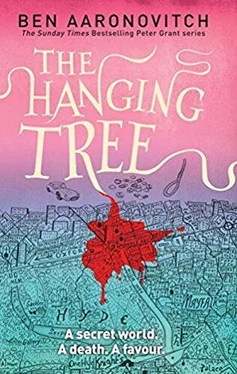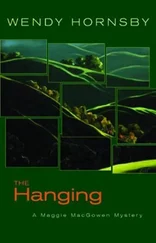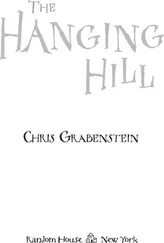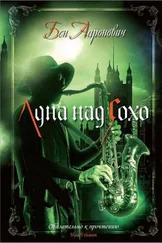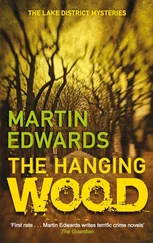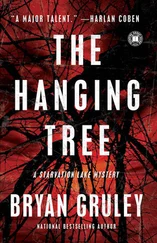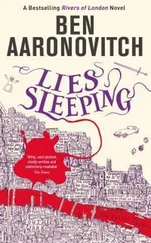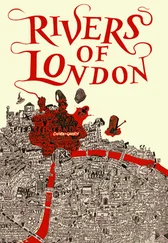I realised that we didn’t actually know who or what owned The Chestnut Tree and its prime bit of super-expensive London real estate. I put finding out on the long list that I carry around in my head, about two thirds of the way down – between rustproofing the Jag and taking Toby to the vet to get his nails clipped. Fortunately I didn’t have to fish for Wanda’s background because she volunteered it upfront.
‘My mother was a Falloy,’ she said. ‘Do you know what a Falloy is?’
‘Irish surname,’ said Guleed.
‘That too,’ said Wanda.
A Falloy, according to Joseph Malzeard in his work On the Natural Order of the Unnatural , was a creature one half human, one eighth unseelie fae and three eighths seelie fae. Malzeard described them as ‘ pleasant fellows in the main albeit shiftless and prone to small mischiefs ’. I didn’t mention this to Wanda because it’s good practice not to let on how much you know about a particular witness, and also because I know racist bollocks when I read it.
‘What’s a Falloy?’ asked Guleed.
‘We’re a little bit of this, a little bit of that,’ said Wanda. ‘My parents were originally from Brittany.’ Which explained the surname as well.
I said that we were looking to check whether she’d noticed certain people visiting the pub in the last six months.
‘This is purely for elimination purposes,’ added Guleed.
I took out my official police tablet and showed her some pictures.
‘That one looks familiar,’ she said when I showed her Jeremy Beaumont-Jones.
‘Has he been in here?’ asked Guleed.
Wanda shook her head.
‘Shit,’ she said. ‘Wait, I have seen him. He was much younger. Was he a student at Oxford?’
I said he had been, but I was careful to keep it vague. Once you get them talking, witnesses like to tell you what you want to hear. It’s depressingly easy to lead them astray – just asks the inmates of any remand wing.
‘I did catering at Oxford College in the early nineties,’ she said. ‘I used to do silver service jobs to pay the bills. There was plenty of work around the colleges; they always seemed to be stuffing their faces for one reason or another.’
I nodded – Jeremy Beaumont-Jones had been at Oxford at that time.
‘I remember him because we did a couple of jobs for this dining club,’ she said. ‘And they were a bit odd, if you know what I mean?’
‘Scientology odd?’ asked Guleed. ‘Or My Little Pony odd?’
‘Our kind of odd,’ said Wanda, making a little swirling gesture with her hand that took in all three of us. Guleed frowned at that and gave me an accusing look.
‘Magic, right?’ I said.
Wanda gave me a small smile and tilted her head to one side.
‘Or are we talking fae?’ I asked, but I knew exactly who we were talking about.
‘Wizard stuff,’ said Wanda. ‘You know, spells and wheels and compasses.’
I rummaged around on the tablet until I found a student photograph of Jeremy Beaumont-Jones that I’d lifted off his Facebook Page.
‘Definitely him,’ said Wanda.
I found similarly youthful pictures of Martin Chorley and a couple of other suspected Little Crocodiles, but she didn’t recognise any of them. She did identify a contemporary picture of Geoffrey Wheatcroft, DPhil, former wizard, theology lecturer and the man stupid, or wicked, enough to teach magic outside the formal structure of the Folly.
‘That’s one of things that made them unusual,’ said Wanda. ‘He was there for a lot of the gigs.’
Wanda said it was important not to get carried away with mystique around the dining clubs.
‘It’s just like your average Saturday night in Reading city centre, only wrapped up in a ton of money,’ she said. ‘Well, most of them, anyway . . . not this lot – ah!’ She stopped and tapped the table. ‘Little Crocodiles,’ she said. ‘That’s what they were called.’
And since Geoffrey Wheatcroft turned up to most of the events, that at least kept the student projectile vomiting to a minimum. Although the wandering hands were still a nuisance.
‘Like Greenford disco all over again,’ she said.
‘How did you know they were doing magic?’ asked Guleed.
Because people were popping off spells all through dinner, especially lux which, as anyone will tell you, is the first spell you learn. And there was a drinking game where each contestant conjured a werelight and then saw how many shots they could knock back while keeping it up.
She didn’t recognise the young Martin Chorley or Albert Pryce – which Wanda freely admitted didn’t mean they weren’t there. Silver service is hard work and, like most of the young women doing the dining club circuit, she concentrated on getting through the night with the maximum of tips and the minimum of manhandling.
‘But you haven’t seen Jeremy Beaumont-Jones since Oxford?’ asked Guleed, bringing us back to the case at hand.
‘No, sorry,’ said Wanda. But when we showed her pics of Phoebe, Olivia and Christina she sighed and said the last two had definitely been in. She didn’t know who Christina was, but she remembered Olivia’s name on account of her having to call her mum to take her away.
‘Why was that?’ asked Guleed.
‘Do you see where we are?’ asked Wanda. ‘Do you know what was standing here before they started hanging people behind closed doors? Do you know the real name of this place?’
‘Tyburn,’ said Guleed, who’d obviously been paying more attention to me than I thought.
Because back in the days of yore, when Oxford Street was the Tyburn Road and the city had only just started its mad rush to cover all the west in desirable redbrick and stucco terraces, it was the main route out of London to the little village of Tyburn that sat just beyond where the road crossed the river.
Condemned prisoners were loaded onto tumbrils at Newgate Gaol, and would wind their way through the streets of London, past the rookeries at St Giles, before hitting the long straight road into the open countryside and the Tyburn Tree.
And it was a busy place, the Tyburn Tree. Because markets were laissez-faire , every Englishman’s home was his castle and what passed for law and order was largely privately run. Back then the gentry lived in fear of the London mob and, to keep the masses in check, made sure that stealing bread or your employer’s linen was a topping offence.
So they came in numbers, the tragic lads and lasses, the local boys and the immigrants from Yorkshire, Cornwall and Berkshire, from Strathclyde and County Clare. Some weeping, some defiant, and most of them pissed out of their box because the whole sad procession from Newgate Gaol would make periodic pauses for refreshments.
‘This was the last stop,’ said Wanda.
A last drink under the spreading chestnut tree, perhaps a chance to unburden yourself of any secrets or things you might not be able to take into the next world. And so The Chestnut Tree became the repository of final bequests.
Or a final offering, a tradition from back when the river ran free and its god walked amongst men.
Jonathan Wild went to the tree in the spring of 1725. I wondered whether this was where he’d left his final ledger. And if he had, was it a coincidence that Christina Chorley and Reynard Fossman happened to meet up here?
Coincidence, I thought. Like fuck.
So I asked about Reynard.
‘Oh yeah, Reynard,’ said Wanda. ‘We know all about the Reynards.’
‘We?’ I asked.
‘My family,’ said Wanda. ‘We know all about him.’
‘Reynards you said,’ said Guleed. ‘Reynards plural.’
‘And his family,’ said Wanda. ‘From France. They’re a long line of total Reynards.’
Читать дальше
